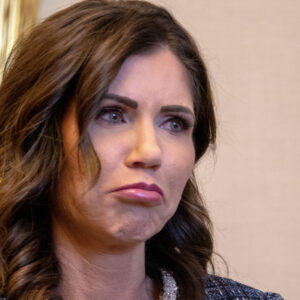When my nine-year-old found her birthday cake destroyed in our kitchen, her heartbroken scream echoed through the house. I had no idea that the person responsible would not only ruin her special day but also try to shatter our family with cruel words.
My daughter Sophie is the kind of child who gives away her last piece of candy without thinking twice. She draws notes that say “I love you, Mommy” and hides them under my pillow for me to find later. When I remarried three years ago, I was terrified she might feel left out. But my husband James adored her from the start. He read bedtime stories in silly voices, helped her with math homework, and ran beside her for hours until she learned to ride her bike. When she called him “Dad” for the first time, his eyes filled with tears.
For her ninth birthday, Sophie dreamed of pink balloons, glittering streamers, and a cake “bigger than my head and prettier than a princess dress.” I promised I would make it myself. I spent hours in the kitchen, baking three sponge layers, whipping cream by hand, and carefully decorating the pale pink frosting with flowers and pearls. When Sophie saw it, her gasp of joy made every aching muscle worth it.
The morning of her party, our house transformed into a wonderland of balloons and unicorn-patterned plates. Friends arrived, laughter filled the rooms, and Sophie ran around in her pink dress, glowing with excitement.
Then she went to the kitchen for lemonade. Moments later, her scream tore through the house.
The cake I had poured my love into was destroyed—smeared, crushed, the birthday message obliterated. Sophie’s tears streamed down her cheeks as she asked, “Who would ruin my birthday cake?”
Everyone else was in the living room. But James’s mother, Helen, sat apart, her lips curved into a faint smirk. My stomach sank.
“Helen,” I demanded, “did you do this?”
Her expression hardened. “Why would I bother myself with a cake?”
But Sophie looked straight at her grandmother, whispering, “Why would you do this to me?”
Helen’s eyes went cold. “Because you’re not really mine. You’re not even James’s real daughter. I’m tired of pretending.”
The words sliced through the room. Sophie sobbed against me, trembling, while rage boiled in my chest.
James came in just then, saw the cake, the tears, the smug look on his mother’s face. His voice was steel. “Don’t you ever say that again. Sophie is my daughter. She became mine the moment I chose to love her, and nothing will ever change that.”
Helen sneered. “You’re blinded by sentiment. One day you’ll regret wasting your love on someone else’s child.”
“No,” James said firmly. “The only regret I have is letting you near her this long. If you cannot accept Sophie, you are not welcome in our home—ever.”
Helen stormed out, slamming the door. The house went silent except for Sophie’s quiet sobs.
James knelt in front of her, taking her hands. “Listen to me, sweetheart. You are my daughter. Always and forever. Nothing can ever change that. I love you more than anything.”
Her small arms wrapped around his neck, and for a moment, despite the ruin around us, I felt the strength of our family bond.
But James wasn’t done. He kissed Sophie’s head, grabbed his keys, and left without explanation. Half an hour later, he returned carrying a bakery box tied with a ribbon and a bouquet of balloons.
“No one ruins your birthday,” he said softly as he opened the box to reveal a sparkling unicorn cake. Sophie’s eyes lit up again as she blew out nine candles, making her wish with a smile.
That night, after she’d fallen asleep with her new toy clutched tight, James took my hand. “She’s ours,” he whispered. “Nothing Helen says will ever change that.”
And I realized something. Families aren’t defined by blood, or by those who try to tear you apart. They’re defined by love, by the people who show up, fight for you, and never let you feel unwanted. Sophie was loved—deeply, fiercely, unconditionally. That was all that mattered.


